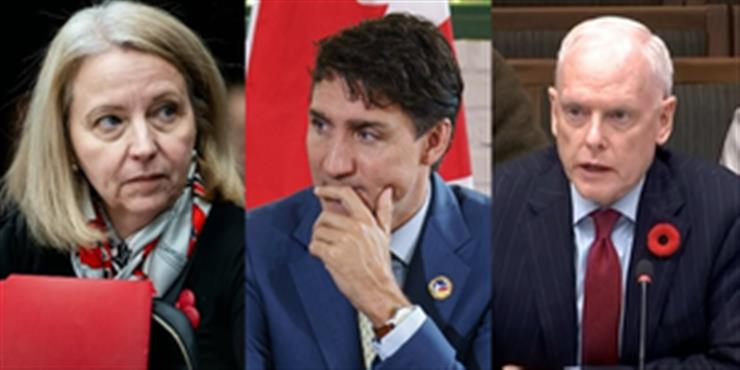In a troubling revelation regarding the Canadian government’s conflict with India, two senior officials in Ottawa acknowledged leaking so-called “intelligence” to U.S. media outlets before making it public in Canada. Nathalie Drouin, Canada’s National Security and Intelligence Advisor, and David Morrison, Deputy Minister of Foreign Affairs, disclosed this information to The Washington Post prior to the Royal Canadian Mounted Police (RCMP) accusing India of involvement in the assassination of Khalistani terrorist Hardeep Singh Nijjar and related incidents in Canada.
During a session with a parliamentary committee, Drouin explained that the leak was part of a “communications strategy” to ensure a prominent U.S. outlet presented Canada’s viewpoint amid escalating tensions with India. She noted that the information shared, which was reportedly non-classified, was released before Canada’s Thanksgiving on October 14. Drouin indicated that while the strategy had been seen by the Prime Minister’s Office, it did not require Prime Minister Justin Trudeau’s approval.
Drouin maintained that the leaked intelligence did not include any classified material and was meant to express Canada’s concerns about alleged illicit activities by Indian agents targeting Canadians, including threats to their safety. This communication included allegations that connected Indian officials to the murder of Khalistani supporter Sukhdool Singh Gill, who was shot in Winnipeg last year, following Trudeau’s accusations against Indian officials regarding Nijjar’s death, though no evidence was provided for those claims.
Tensions escalated between Canada and India after India expelled six Canadian diplomats on October 14, following Ottawa’s designation of India’s High Commissioner and other diplomats as “persons of interest” in the Nijjar murder investigation. On that same day, senior RCMP officials publicly made serious allegations against India.
India has long asserted that the Trudeau government has deliberately created a climate where violent extremists and terrorists can harass and intimidate Indian diplomats and community leaders in Canada. When announcing their decision on October 14, India stated that it lacked confidence in the current Canadian government’s ability to ensure the safety of its diplomats, especially in an environment characterized by extremism and violence.
On October 13, National Security Advisor Ajit Doval reportedly met with his Canadian counterpart in Singapore, where Canadian officials presented evidence of India’s ties to the Bishnoi gang for attacks on Sikh separatists in Canada. The parliamentary committee scrutinized Drouin and Morrison for opting to share sensitive information with The Washington Post rather than informing the Canadian public first. Conservative public safety critic Raquel Dancho criticized the decision as “unfair to the Canadian public,” asserting that Americans were informed before Canadians.
RCMP Commissioner Mike Duheme backed Drouin’s position, confirming that the leaked information was unclassified and was withheld from the public to protect ongoing investigations.
